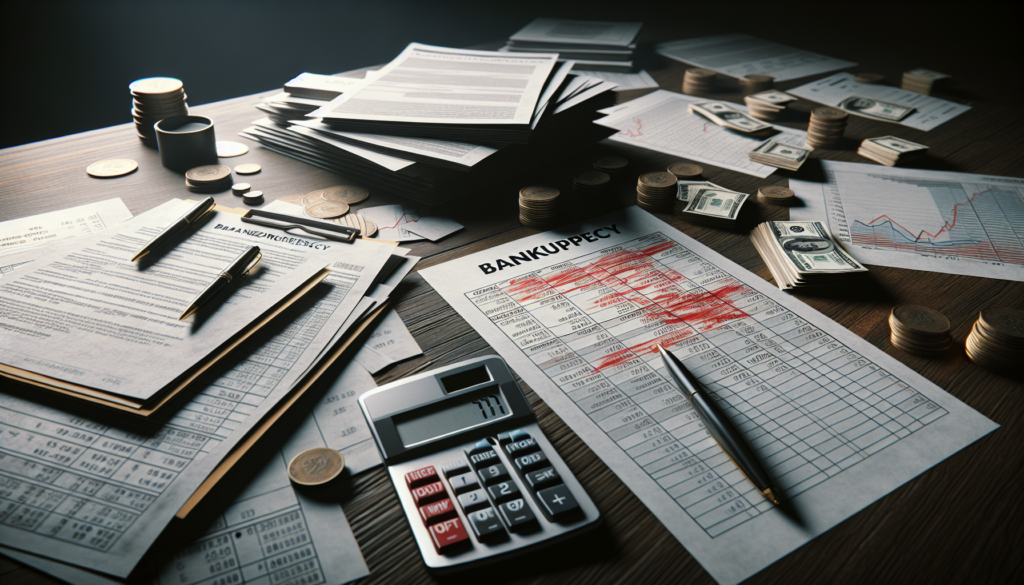
While bankruptcy can offer a fresh start for those overwhelmed by debt, it’s not always the best course of action for everyone. There are several significant considerations to weigh before deciding to file for bankruptcy. Here are the top seven reasons why filing for bankruptcy might not be the best solution when you’re in debt, along with examples to illustrate these points:
- Impact on Your Credit Score
- Long-Term Consequences: Filing for bankruptcy can have a lasting impact on your credit score. A Chapter 7 bankruptcy stays on your credit report for 10 years, while Chapter 13 stays for 7 years. This can make it challenging to obtain new credit, secure favorable interest rates, or even pass certain employment screenings.
- Example: If John files for bankruptcy today, his ability to get a mortgage or car loan at a reasonable interest rate could be significantly affected for the next decade.
- Non-Dischargeable Debts
- Certain Debts Remain: Not all debts can be eliminated through bankruptcy. Obligations like student loans, child support, alimony, certain taxes, and debts incurred through fraud are typically not dischargeable.
- Example: Sarah, who has substantial student loan debt, might find that filing for bankruptcy won’t relieve her of her largest financial burden, making the filing less beneficial.
- Loss of Privacy and Public Record
- Public Disclosure: Bankruptcy filings are public records, which means that anyone can access the details of your case, including your debts, assets, and more.
- Example: If a local business owner, Alex, files for bankruptcy, his customers and competitors can access the details of his financial situation, potentially impacting his business reputation.
- Asset Liquidation
- Risk to Property: In Chapter 7 bankruptcy, you might have to surrender certain assets to the bankruptcy trustee to be sold and used to pay off creditors. While there are exemptions to protect essential assets, they vary by state and might not cover all your valuable property.
- Example: Emily, who owns a collection of valuable artwork, might risk losing this collection in a Chapter 7 bankruptcy if the assets are not exempt.
- Impact on Employment and Housing
- Employment Concerns: Some employers conduct credit checks, and a bankruptcy on your record could impact your ability to secure certain jobs, especially in finance or executive positions.
- Example: David, who is applying for a managerial position in a financial institution, might find that his recent bankruptcy filing adversely affects his job prospects.
- Housing Challenges: Landlords often check credit reports, and a bankruptcy can make it more difficult to rent an apartment or house.
- Example: After filing for bankruptcy, Lisa might face challenges in leasing an apartment, as landlords may view her as a high-risk tenant.
- Emotional and Psychological Impact
- Stress and Stigma: The process of going through bankruptcy can be stressful and emotionally taxing. There’s also a social stigma associated with bankruptcy that can affect your mental well-being.
- Example: Kevin might experience stress and a sense of failure during the bankruptcy process, impacting his mental health and social relationships.
- Future Credit and Loan Opportunities
- Higher Costs and Rates: After bankruptcy, the cost of obtaining new credit or loans is typically higher, with increased interest rates and less favorable terms.
- Example: Five years post-bankruptcy, Jenna may find that the interest rates available to her for a car loan are significantly higher than they would have been without the bankruptcy on her record.
Bankruptcy should be considered a last resort after exploring other debt relief options. It’s crucial to weigh the long-term impacts against the immediate relief it offers. Consulting with a financial advisor or a bankruptcy attorney can provide clarity and guidance tailored to your specific financial situation, helping you make an informed decision about whether bankruptcy is the right path for you.
Filing Bankruptcy

Get a Free Bankruptcy Case Evaluation